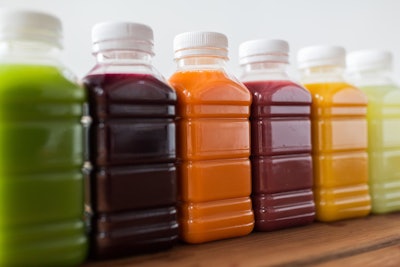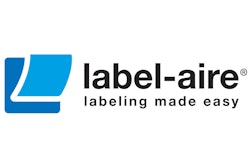In 2012, brother and sister Joseph Ragozzino and Amy Lawless were researching business opportunities when they came across an article on High Pressure Processing, a post-packaging food safety and preservation technique for food and beverage products that uses high pressure rather than heat. Both Ragozzino and Lawless were well-acquainted with the food industry, having grown up around it; their father and aunts run a contract manufacturing business that produces items such as frozen foods, pasta, and sauces. Both also were aware of consumers’ budding interest in organic and natural foods and recognized the growth potential for that market.
“We looked at the HPP industry and what it could do for the food industry, and the two seemed to fit hand in hand,” says Lawless.
Making an investment in HPP even more inviting, HPP tolling services at that time were scarce in the Northwest where Ragozzino and Lawless were located. After researching HPP equipment and visiting tolling centers to better understand the business, they invested in an Avure AV30 (formerly called the 350-liter) HPP machine from JBT/Avure Technologies, Inc. and launched their company, Stay Fresh Foods, with the tagline "Fresher Under Pressure."
Since then, the market for all-natural, preservative-free foods has gone from niche to mainstream, and as a result, Stay Fresh Foods has grown from one facility to two, from a handful of employees to 150, and from one HPP machine to three. To complement its HPP services, the company has also added beverage co-packing capabilities. Its total capacity now stands at 100 million pounds of HPP product processed each year, with 50 million bottles produced on its filling lines annually.
HPP machines deliver
HPP is a technique that has been commercially available for nearly 30 years, but it only just began to take hold in the mid-2000s, when the equipment became more reliable and economically viable. The non-thermal technology employs ultra-high water pressure to disrupt cellular activity and destroy foodborne pathogens such as Listeria, E. coli, and Salmonella in packaged, refrigerated products. Because the process uses pressure rather than heat to preserve the product, there is little to no change in product taste, texture, or nutritional value. It also has been proven to extend the shelf life of foods by two to three times versus high-temperature pasteurization methods.
Lawless, who holds the position of Managing Director for Stay Fresh Foods, says that since the company opened its first plant in Meriden, CT, in early 2013, she has seen the range of products using HPP grow significantly. Categories now include natural meats, dips, hummus, spreads, juices, seafood and shellfish, processed fruits and vegetables, and more. Stay Fresh Foods has also started to work with some emerging HPP categories such as pet and baby food. “We are probably doing a little bit of everything,” she says.
At its 28,000-sq-ft Meriden facility, Stay Fresh Foods operates two AV30 HPP machines, with the second unit installed just one year after the first, in 2014. “At that time, it was still the largest machine Avure offered,” Lawless explains. “We were really happy with the performance of our first machine, so we went ahead and bought the same one again. Running two of the same machines under one roof also helps with spare parts and maintenance.” Each AV30 is capable of processing 30 million pounds per year.
Stay Fresh Foods’ second facility—a 66,000-sq-ft plant in Pennsauken, NJ, that opened in 2015—is equipped with Avure’s now-highest-volume machine, the AV60. The AV60 has a throughput capacity of 60 million pounds per year. Lawless says the driver for purchasing the AV60 was the capacity and throughput of the machine.
During the HPP process, products in their containers are manually loaded into perforated baskets at the front of the HPP machine and are then conveyed into the pressure vessel where they are held for a period of time, typically from two to four minutes, depending on the product, at pressures up to 87,000 psi.
The hold time is product-specific, rather than category-specific, and depends on a product’s water activity and its Brix, or sugar, content. Most products undergo the full 87,000-psi pressure, although some require a bit less, Lawless explains. Stay Fresh Foods works with Avure and its lab to determine these variables when a customer brings in a new product.
Stay Fresh Foods also offers recommendations to customers on the types of packages that work best for HPP. Says Lawless, “We’ve run so many different types of packages and labels through the machine, and we’ve seen enough mistakes by different companies to be able to give some good advice to anyone looking to move forward with an HPP product.”
For example, PET bottles must have enough flexibility and the right cap seal to ensure the container withstands the pressure. For meat products, the oxygen permeability of the film is a consideration. “When a meat product goes through HPP, it could have a shelf life upwards of six months,” Lawless explains. “In those cases, there needs to be a very strong film to make sure it’s going to hold up for that time period.”
According to Lawless, one essential element of Stay Fresh Foods’ successful use of HPP machines has been the close working relationship it has had with Avure. “You have to have a strong partnership when you’re running this equipment, because it requires a lot of day-to-day maintenance.
“The amount of pressure that runs through the HPP machines is so high [87,000 psi is six times more pressure than that of the deepest part of the ocean], we know there will be breakdowns. As long as we work together on the strategy and how to handle the maintenance and preventative program, then we’re in good shape.”
Bottle filling provides a one-stop shop
While Stay Fresh Foods began primarily as a tolling service, it has always provided some co-packing capabilities. Most of its customers require secondary packaging for their products after they have been processed, and Stay Fresh Foods tries to accommodate them in any way they can. Among its services are case packing, ink-jet printing, shrink-wrapping, multipacking, and sleeve labeling, as well as customized services for special projects. The company also offers refrigerated, frozen, and dry warehouse space for post-production storage needs and can ship product direct to distributors or retailers.
In 2016, it significantly expanded its co-packing services, installing a PET bottling line at its Meriden facility. Stay Fresh Foods chose bottling in order to make the HPP proposition easier for its beverage customers, who until then needed to ship their beverages to the Meriden facility daily. As Lawless explains, beverages need to go through HPP within 24 to 48 hours after being filled, or they spoil.
“So we were hearing from almost all of our beverage customers that they were looking for a one-stop shop,” Lawless says. “Because we grew up in the food industry and have that manufacturing experience, we purchased a bottling machine, and we thought we would try and take all of those customer requests and put them under one roof and manage the beverage items from start to finish—from ingredient procurement all the way through production, HPP, and then shipping.”
Stay Fresh Foods runs a variety of beverage types, including fruit and vegetables juices, lemonades, cold-brew coffees, and probiotic waters, among others. “There’s a pretty wide range of beverages that work well with HPP,” Lawless shares.
The bottling line at Meriden is equipped with a Filler Specialties 15/5 monobloc 15-valve rotary gravity filler with five-head capper that handles PET containers ranging in size from 8 oz to 1 gal at speeds from 80 to 100 bottles/min.
Says Ragozzino, VP of Operations, this particular filler was chosen for its availability and run speed. He adds, “Rotary fillers are very efficient and flexible. Filler Specialties is also a big name in the industry, with a great reputation.”
Following filling, bottles receive a date code and are then labeled. The line features a Label-Aire Inline 5100 pressure-sensitive wrap labeler for round and square bottles and a Label-Aire Inline Series 6000-N front and back p-s labeler for square bottles. After labeling, bottles are organized by flavor and by lot code and are processed via HPP on the same day.
Stay Fresh Foods complements its bottling capabilities with product formulation and testing services, as well as sourcing of ingredients, pre-production refrigerated, frozen, and dry storage, and blending. The company also has a large-scale cold-brew capacity.
Based on the success of its bottling line in Meriden, the company installed a second, identical filler in its Pennsauken plant in late 2018.
Positioned for future growth
Stay Fresh Foods has built a solid business around a technology that is growing significantly. In 2018, the HPP food products market value was estimated at $12 billion, a number that JBT/Avure says is expected to double within six years.
One of the things Lawless says differentiates Stay Fresh Foods from its competitors is its commitment to service. “My brother and I are very close to the business, to the production floor, and to our customers. We are very service-oriented, and our employees have the same mentality. So most of our customers who started with us are still with us. I don’t think we’ve lost a customer for a service-related incident since we’ve started. We’re very proud of the way we interact with our customers and the way our employees handle customer product.”
The other differentiator, she says, is Stay Fresh Foods’ certifications. These include Organic, Kosher, Non-GMO, USDA, FDA, and SQF Level 3, which ensures the company follows the highest recognized standards of both safety and quality. So, for those customers selling product into stores such as Costco or Walmart that require a high level of certification, they can be assured their products meet the required standards.
While Lawless does not give specifics on Stay Fresh Foods’ plans for 2019, she notes that the company is always looking at future growth plans. With space to expand at its Pennsauken plant for future HPP equipment and cold storage, there’s no doubt Stay Fresh Foods is positioned to follow wherever the market leads.
Get to know the CPC
Launched in 2016, the Cold Pressure Council leads, facilitates, and promotes industry standardization, user education, and consumer awareness of High Pressure Processing. CPC has a growing membership of more than 30 companies; its general membership category (there are four categories in all) includes full equipment suppliers; HPP value-added service providers, contract manufacturers, and co-packers; and brand owners processing food and/or beverage products. Managed by PMMI – The Association for Packaging and Processing Technologies, the council addresses questions about HPP while developing and formalizing industry best practices. Members that verify they properly use HPP in their food production operations are entitled to use the association’s High Pressure Certified® logo on their product packaging.



























